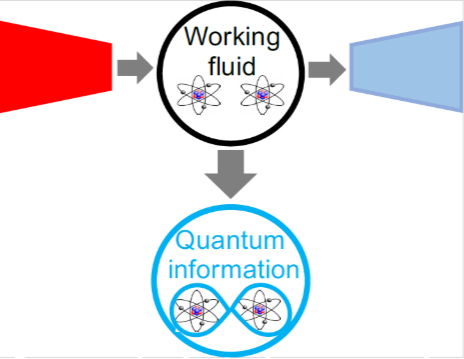Quantum thermodynamics
Quantum thermodynamics aims at understanding the thermodynamic properties of quantum systems, and hence the interplay between two fundamental theories of physics. Given the strong connection between thermodynamics and the concept of information (e.g. Maxwell’s demon), it is not surprising to see that concepts and methods of quantum information are relevant in the context of quantum thermodynamics. For instance, based on entanglement theory, a resource theory of quantum thermodynamics was recently developed. From a more practical perspective, these studies are relevant as experiments with quantum systems are attaining regimes in which thermodynamical considerations cannot be ignored, and could potentially be used advantageously.
A fundamental question in this area is to undertand the role played by quantum properties (such as entanglement and coherence) in the context of quantum thermodynamics. Loosely speaking, what is quantum in quantum thermodynamics? Our aim is to explore this question in the context of small autonomous quantum thermal machines. These machines represent an ideal testbed for discussing these questions, as they function without any source of work or external control, but using only thermal interactions with heat baths at different temperatures. In particular, we investigate how entanglement and coherence can enhance performance of these machines, for instance by achieving better cooling or extracting more work from given resources. Moreover, we also explore the possibility of creating stable entanglement from dissipative coupling to thermal reservoirs. Finally, we discuss the practical relevance of these ideas, and investigate the feasibility of experimental realizations of autonomous quantum thermal machines in mesoscopic systems, such as superconducting qubits and semiconductor quantum dots.
